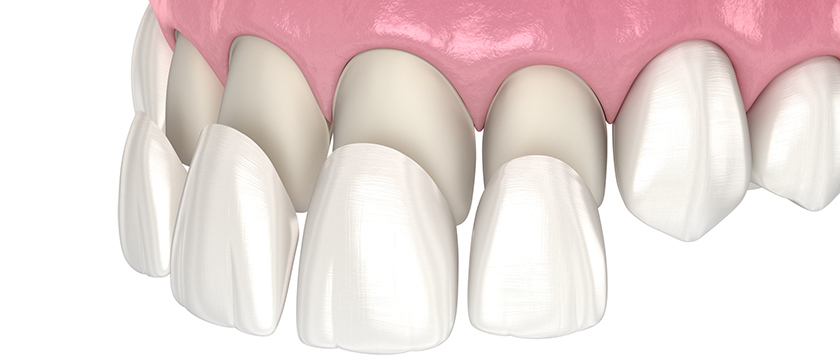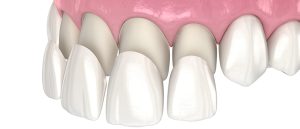
Dental veneers are an excellent investment for those looking to enhance their smile’s aesthetics. When cared for properly, veneers can last for years, giving patients a radiant and natural-looking smile. However, to ensure the longevity of these restorations, it’s essential to maintain good oral hygiene and make mindful lifestyle choices. This guide provides professional insights into the best practices for maintaining dental veneers, helping you achieve a beautiful, long-lasting smile.

1. Prioritize Oral Hygiene
Good oral hygiene is fundamental to the health and longevity of your veneers. Although veneers themselves are resistant to decay, the natural teeth underneath are still vulnerable. Brushing twice daily with a non-abrasive fluoride toothpaste and using a soft-bristle toothbrush can help protect both the veneers and natural teeth. Additionally, flossing daily removes plaque buildup around the gumline, preventing gingivitis and ensuring that your gums stay healthy and secure around the veneers.
Pro tip: Consider investing in an electric toothbrush. Electric brushes can provide a gentle but thorough clean, especially beneficial for those with veneers.
2. Limit Stain-Causing Foods and Beverages
While porcelain veneers are generally stain-resistant, excessive exposure to certain substances can discolor them over time. Drinks like coffee, tea, red wine, and soda can cause surface stains, especially if consumed frequently. Additionally, acidic foods and drinks can wear down the veneer’s surface, making them more prone to staining.
To minimize staining:
- Use a straw when drinking darker beverages to limit direct contact with your veneers.
- Rinse your mouth with water after consuming stain-causing foods or drinks.
- Avoid using whitening toothpaste, as it can be too abrasive for veneers.
3. Protect Your Veneers from Damage
Dental veneers, while durable, are not indestructible. To avoid chipping or breaking:
- Do not use your teeth as tools to open packages or bite into hard objects.
- Avoid chewing on hard items like ice, pens, or hard candy.
- If you grind your teeth at night, consider wearing a nightguard to prevent damage. Grinding (bruxism) can apply excessive force on veneers, potentially causing cracks or chips.
Wearing a custom-made mouthguard while sleeping can also help extend the life of your veneers by reducing pressure and protecting the underlying teeth.
4. Maintain Regular Dental Checkups
Routine dental visits are vital to monitor the condition of your veneers and ensure overall oral health. Your dentist will check for any signs of wear, cracks, or potential problems, as well as clean your teeth and veneers professionally. It’s recommended to visit your dentist at least twice a year, or more frequently if advised.
During these visits, inform your dentist of any discomfort or sensitivity you might experience. Catching issues early can prevent more extensive work in the future and help keep your veneers in top condition.
5. Avoid Smoking
Smoking not only affects your general health but can also impact the appearance of your veneers. Tobacco products can lead to staining around the edges of the veneers, giving a dull appearance to your otherwise bright smile. Additionally, smoking can increase the risk of gum disease, which may affect the stability of veneers over time. Quitting smoking or limiting exposure can help maintain the color and health of both your veneers and natural teeth.
6. Be Mindful of Temperature Sensitivity
Some patients may experience mild sensitivity to hot and cold foods following veneer placement. While this sensitivity usually decreases over time, it’s wise to avoid extremes in temperature if you notice discomfort. Overly hot or cold beverages, for instance, can sometimes lead to temporary sensitivity, so enjoy these with caution. If the sensitivity persists, consult your dentist, as it may indicate a need for adjustments or additional treatments.
7. Eat a Balanced Diet for Oral Health
A diet rich in nutrients is essential for gum health, which in turn supports the longevity of your veneers. Calcium-rich foods (such as dairy products, leafy greens, and almonds) help maintain strong teeth, while foods high in vitamin C support gum health. Avoiding sugary snacks and drinks can also reduce plaque buildup, contributing to a healthier environment for both veneers and natural teeth.
Final Thoughts
With proper care and mindful habits, dental veneers can provide a lasting solution for a bright and beautiful smile. Incorporating these care tips into your daily routine will not only help maintain the appearance of your veneers but also contribute to better overall oral health. For any specific concerns or additional guidance, consult with a dental professional who can provide personalized recommendations.
